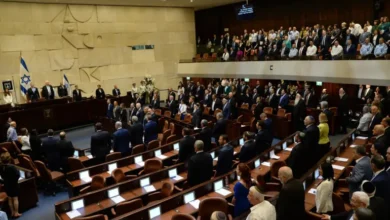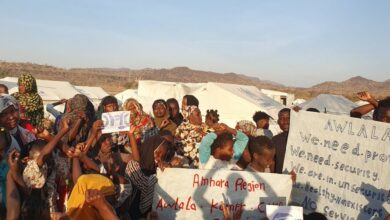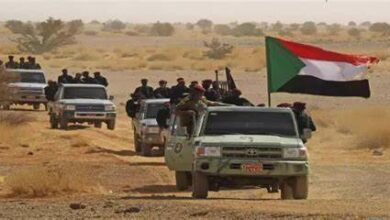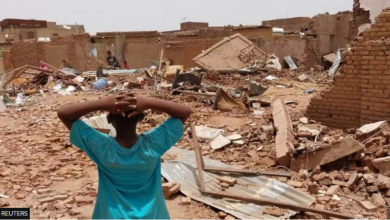Following the removal of Hamidti’s ally Bazoum… What effects will the coup in Niger have on the Arab tribes that support both parties?
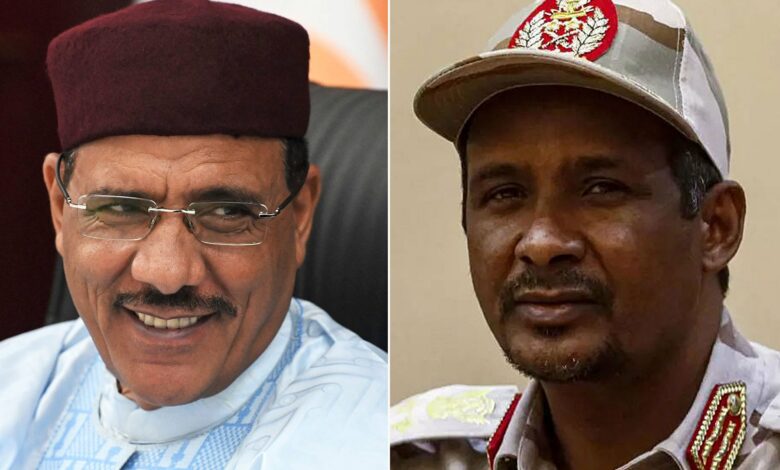
14 weeks after the outbreak of fighting in Khartoum, the controversy escalated about the participation of thousands of fighters from Arab elements in West African countries alongside the Rapid Support Forces in confronting the army in Sudan, following the announcement of the commander of the Presidential Guard in Niger, General Omar Abd al-Rahman Tiani, the coup against President Muhammad Bazoum.
Unusually, the developments in this country – which is separated from Sudan by Chad – have received the attention of a wide segment of the Sudanese, due to Niger’s association with the confrontations taking place in their country, and information about the use of the leadership of the Sudanese Rapid Support Forces by the sons of Arab tribes in some countries of the Sahel and West Africa.
And what increased the matter’s excitement and sensitivity, the Sudanese army published video clips that carried confessions of prisoners from the Rapid Support Forces – who hail from West African Arabs – that they had received promises from the “rapid support” to settle them in the homes of citizens in Khartoum after they were expelled from them as spoils of war.
When did Hemedti start contacting Arab fighters from West African nations?
It is worth noting that the Rizeigat tribe, to which Hemedti belongs, has extensions in the Sahel and West African countries with different names, as it is found in Chad, Niger, Mali and others.
Since the establishment of the Rapid Support Forces in 2013, Hamidti brought fighters from these countries and participated in the war in Darfur, where some of them brought their families and settled in the region, especially the areas that were abandoned by its people during the war, and exploited the orchards and farms.
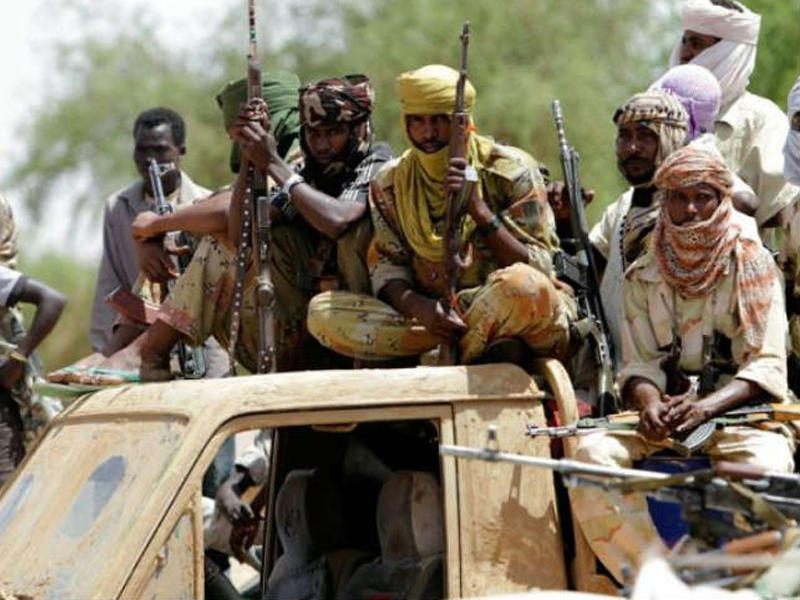
The arrival of these fighters to Sudan increased after the participation of the Rapid Support Forces alongside the Sudanese army within the Arab coalition forces to support legitimacy in Yemen since 2015, according to the security expert.
What is the relationship of the isolated Nigerian president with Hemedti?
Hemeti’s relationship with Bazoum strengthened after the latter’s candidacy for the presidency. According to the security source, and based on information from Western diplomats in Niamey, the capital of Niger, the RSF commander supported Bazoum with more than $20 million in his electoral campaign.
When Bazoum won the elections, he chose to invite Hamidti—the vice president of the Sudanese Sovereignty Council—rather than the council’s head, Abdel Fattah Al-Burhan, to visit Niger.
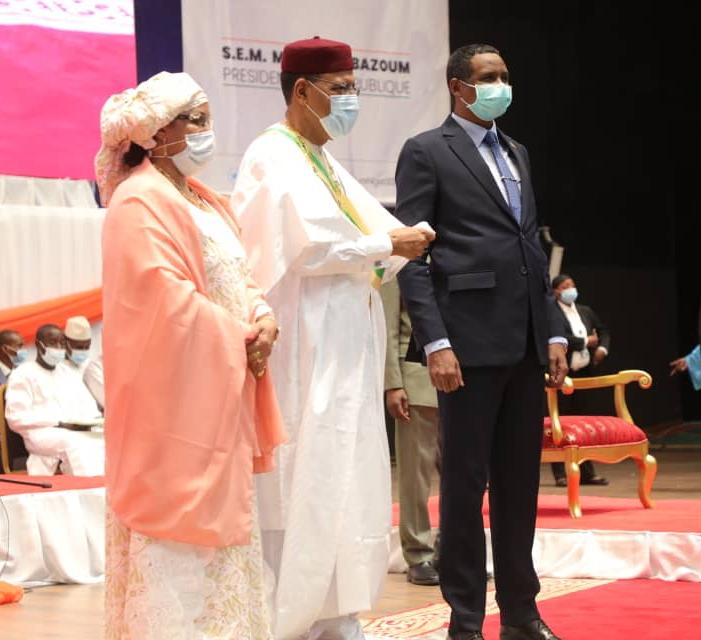
The Rapid Support Commander attended President Bazoum’s inauguration ceremony in April 2021. During a private meeting with him, it was revealed that he advised him to prepare his own forces to defend his rule in the event of any challenges. The Rapid Support Commander also met with the sheikhs of the Arab groups that supported him.
How many Niger Arab fighters in the battle of Khartoum? And when did they join the Rapid Support Forces?
The number of fighters from Niger within the Rapid Support Forces is estimated at more than 4,000 members – according to security sources. They are from Arab Mahamid, from whom President Bazoum descends from one of its branches, “Awlad Suleiman”, and it has an extension in Libya as well.
Some of these combatants joined Hamidti’s forces in the past, underwent training overseen by the Russian Wagner Group, and took part in the conflict in Yemen against the Houthis.
The continued flow of Niger Arab fighters after the outbreak of fighting in Khartoum
Security sources explain that some Arab fighters came from Niger to Khartoum after the outbreak of the war in Khartoum as part of the rescue of Hemedti’s forces, known as “Al-Faza’a”, to compensate the “Rapid Support Forces”, which lost many of its members.
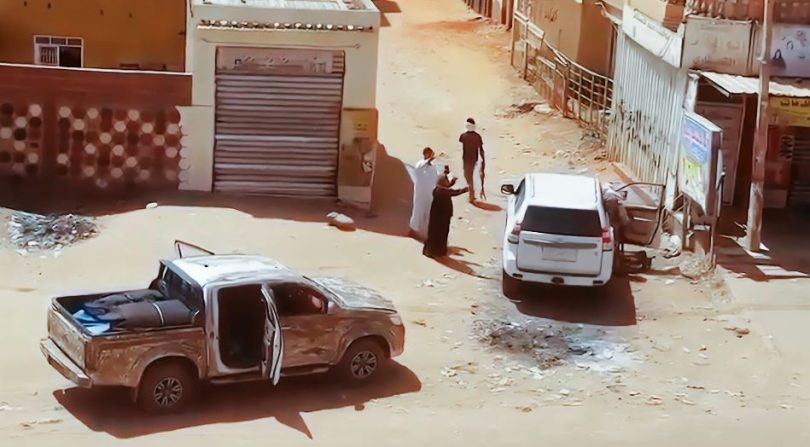
There are other groups of fighters who arrived in Khartoum after they heard that there were spoils of money, gold, and cars that were looted by some of their compatriots who left the battlefield, and the large looted items from the Sudanese capital became markets that revived unregulated trade in Chad and Niger.
An alliance between Hamidti and Bazoum after the latter was elected president
According to a diplomatic source, Bazoum’s victory left behind a state of euphoria among the tribes of the Arab diaspora. With the growth of Hamidti’s role in Sudan and his ability to naturalize a million people from these tribes scattered in the countries of African coast, Libya and Mauritania, he felt the possibility of achieving the “Greater Junaid State”. The Junaid is the one who ends up with the lineage of the Arab groups in the coastal countries.
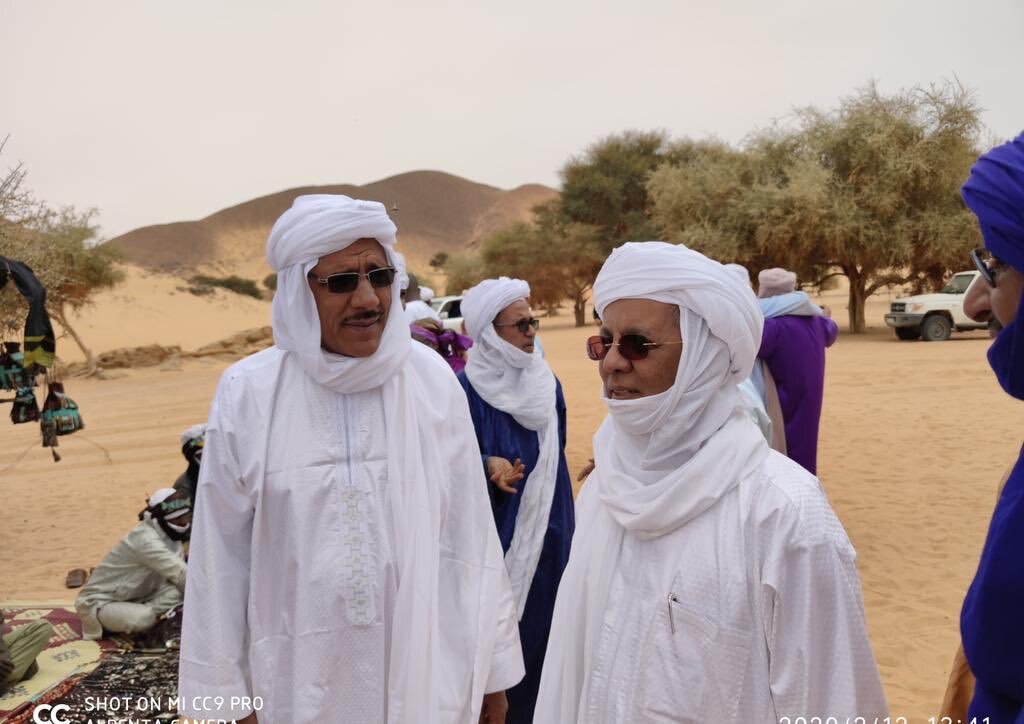
Because of the clan entanglement, Hamidti supported Bazoum’s electoral campaign, and his supporters distributed money to voters openly, a method similar to Hamidti’s method of using political money to attract the support of tribal leaders and actors in various fields.


